Denied, Delayed, and Underpaid Insurance Claims
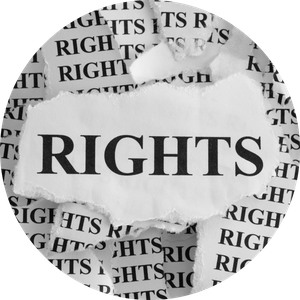
Insurance is supposed to offer peace of mind, protecting your home or business when disaster strikes. Yet, for policyholders in Florida and Colorado, the process of filing a property damage claim often feels more like an uphill battle. Insurance companies, while obligated to act in good faith, frequently delay, deny, or underpay claims, leaving property owners without the funds needed to repair and rebuild.
At Florida State Public Adjusters, Inc., we specialize in helping homeowners and business owners level the playing field. With extensive expertise in mediation, insurance appraisals, Civil Remedy Notices, and other strategies, we fight to ensure that your insurance carrier fulfills its obligations. Below, we’ll explore common tactics insurers use to deny or reduce claims and the steps we take to maximize your settlement.
Why Insurance Companies Deny, Delay, or Underpay Claims
Insurance companies operate as for-profit businesses, and minimizing payouts is in their financial interest. Here’s how they approach claims to reduce their liability:
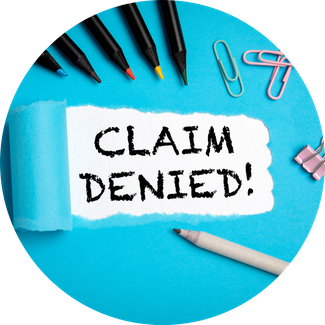
1. Denial of Claims
Insurers often deny claims outright, citing reasons such as:
- Wear and Tear: Roof leak claims, for instance, may be denied as “normal wear and tear,” even when the true cause of loss is blatantly obvious (such as windstorm or hail).
- Policy Exclusions: Carriers often comb through policies to find exclusions (like preexisting damage or flood-related issues) that they can use to deny coverage, even if they’re not applicable to your claim.
- Improper Documentation: Claims lacking detailed evidence (e.g., photos, reports) may be rejected as insufficient, regardless of how unreasonable your carrier’s documentation requests are.
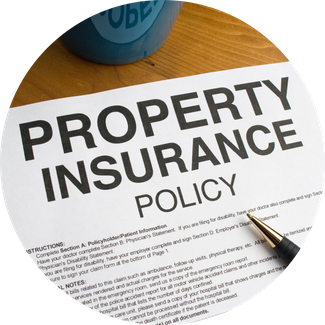
2. Delaying Claims
Delays are another tactic insurers use to frustrate policyholders:
- Large Loss Claims: Fire, hurricane, or sinkhole claims involving significant payouts are frequently stalled as insurers request additional inspections or reports.
- Bureaucratic Obstacles: Requests for repetitive paperwork or unnecessary documentation can slow the process.
- “Investigations”: Insurers often spend weeks or months “investigating” policy loopholes to lower your payout, delaying your claim even further.
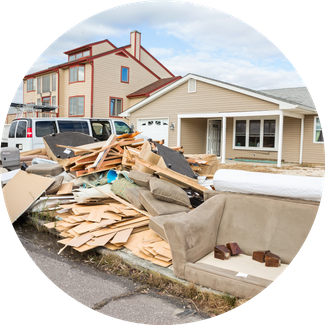
3. Underpayment of Claims
Even when claims are accepted, payouts are often far less than what policyholders deserve:
- Missed Damage: For example, fire damage claims often overlook secondary issues like smoke damage or structural weakening.
- Lowball Estimates: Insurers rely on in-house adjusters to undervalue repairs, sometimes altering their adjusters’ estimates behind-the-scenes without even notifying them.
- Coverage Limits: Misapplied limits, like water backup or mold caps, can artificially reduce your settlement.
Common Property Claims and Insurance Carrier Tactics
Each type of property claim comes with unique challenges. Here’s how insurance companies may approach various claims:
Fire Damage Claims
- Likely Outcome: UNDERPAID
- Why: Adjusters may miss smoke or water damage caused by firefighting efforts, focusing solely on visible burns. Also, many initial payments on fire claims omit your damaged personal contents.
Roof Leak Claims
- Likely Outcome: DENIED
- Why: Carriers often attribute damage to wear and tear rather than wind, hail, or storm impacts, even when evidence suggests otherwise.
Water Damage Claims
- Likely Outcome: DELAYED
- Why: Insurers may stall while investigating whether the source of water falls under a covered peril or excluded cause, even when coverage should be obvious.
Hurricane and Windstorm Claims
- Likely Outcome: UNDERPAID
- Why: Misclassifications, such as treating hurricane damage as wear and tear or applying your hurricane deductible to a tropical storm or tornado loss, allow insurers to reduce settlements.
Theft and Vandalism Claims
- Likely Outcome: DENIED
- Why: Insurers may argue insufficient proof or lack of forced entry to deny claims, often requesting documentation or evidence that they're fully aware doesn't exist.
Preventing Insurance Challenges: Proactive Tips
While some disputes are unavoidable, these steps can strengthen your claim:
Document Damage Immediately
Take photos, videos, and notes of all visible damage as soon as you notice them.
Maintain Records
Keep receipts, invoices, and proof of ownership for personal property. We recommend taking photos of these.
Request a Policy Review
Ensure your coverage aligns with common risks in your area. Having no mold coverage in Florida, for example, is bad news.
Act Quickly
Report damage as soon as possible to avoid missing deadlines. In Florida, you're advised to file within 14 days of noticing damages.
How We Can Help
Our team uses proven methods to challenge wrongful denials, resolve delays, and maximize payouts for underpaid claims.
Here are five of the ways we do it:

1. Direct Negotiations
Our team works directly with your insurance company, leveraging our understanding of policy language and state laws.
- How It Helps: We advocate on your behalf, presenting evidence, policy analysis, and repair estimates to negotiate a fair settlement.
- Best For: Most claims, as negotiations can often resolve disputes without escalation.
2. Mediation
Mediation is a non-binding process where both parties meet to resolve disputes with the help of a neutral mediator.
- How It Helps: We present a compelling case supported by documentation, reports, and legal analysis to secure a favorable outcome.
- Best For: Denied or delayed claims where miscommunication or disagreement over coverage exists.
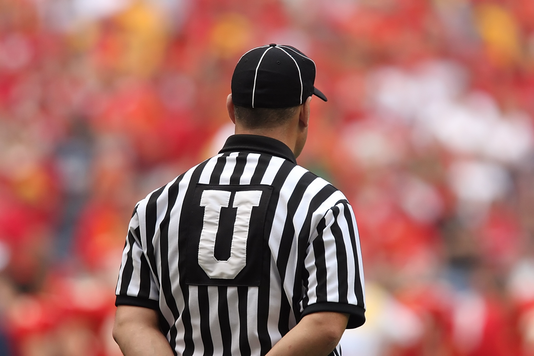
When insurers undervalue claims, the appraisal process allows independent professionals to determine the true cost of damage.
- How It Helps: Both parties select appraisers, and if disagreements persist, an umpire makes the final decision.
- Best For: Underpaid claims where coverage is opened but repair costs are disputed.
4. Civil Remedy Notices (CRNs)
A CRN is a formal notice filed with the state’s insurance regulator, alleging bad faith practices by the insurer.
- How It Helps: Filing a CRN puts pressure on insurers to resolve claims promptly or risk regulatory penalties.
- Best For: Delayed claims or bad-faith denials.
5. Arbitration
Arbitration is a binding process where a neutral arbitrator determines the outcome of a dispute.
- How It Helps: When an insurer refuses to budge, arbitration ensures an impartial party reviews the evidence.
- Best For: Particularly complex disputes, such as damage caused to your property by one of your carrier’s contractors or inspectors.
Maximizing Your Settlement: The Public Adjuster Advantage
By partnering with us, you benefit from:

1. Comprehensive Policy Analysis
We identify every possible coverage available under your policy relevant to your case.
2. Thorough Damage Assessment
Our team inspects your property, documenting both visible and hidden damage related to your loss.
3. Documentation and Evidence Gathering
From photos and repair estimates to expert opinions, we compile a comprehensive case file to strengthen your claim.
4. Expert Collaboration
We work with contractors, engineers, and other professionals to provide detailed repair estimates whenever necessary.

5. Claims Management
From filing paperwork to managing inspections, we handle every step of the process so you don’t have to.
6. Aggressive Advocacy
Whether through negotiation, mediation, appraisal, or otherwise, we fight for the settlement you deserve.
7. Support Every Step of the Way
From filing the claim to resolving disputes, we’re with you at every stage of the process, reducing your stress and allowing you to focus on restoring your home.
Why Choose Us?

When you’re dealing with the aftermath of a hurricane, flood, sump pump overflow, or HVAC leak, you need your insurer to be on your side. Unfortunately, most people have insurance company horror stories.
We bring experience, expertise, and a commitment to securing the best possible outcomes for our clients on their water claims.
Here’s what sets us apart:
- Licensed Professionals: Our team is fully licensed and bonded in Florida and Colorado, giving us the knowledge and advanced training to represent you with confidence.
- Deep Industry Knowledge: With years of experience in Florida’s and Colorado's unique insurance landscapes, we understand the challenges homeowners face regarding their damages.
- Client-Centered Approach: Unlike the carrier's field adjusters, we work exclusively for policyholders — your best interests are always our #1 priority.
- Proven Track Record: We've helped countless homeowners recover fair settlements, even with the most complex claims.
We will always offer the following:
- Free, no-obligation consultations
- Experienced, licensed public adjusters
- Thorough, accurate damage assessments
- Aggressive negotiation with insurers
- Complete claim management, from start to finish
When property damage disrupts your life, you deserve an insurance company that fulfills its promises — not one that delays, denies, or underpays your claim. We hold insurers accountable and work tirelessly to secure the settlement you need to restore your home or business.
Whether you’re facing a wrongful denial, an unjust delay, or an insufficient offer, our team is ready to help. Contact us today for a free consultation and let us turn your claim into the settlement you deserve.
Call (888) 518-5678 or email admin@floridastatepa.com to get started!